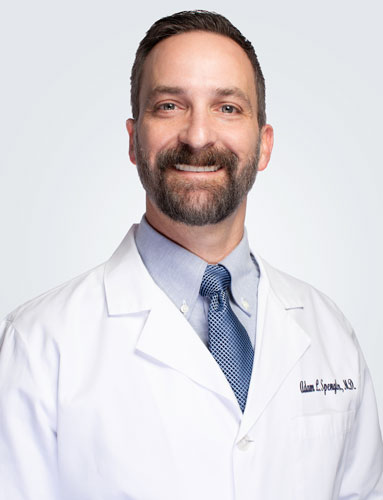Cataract Surgery in Corpus Christi: What To Expect
More than 50 percent of people over the age of 60 (and a large percentage of those younger) have vision that is impaired by cataracts. Cataracts are so common that almost everyone will eventually develop a cataract.
If your cataracts are interfering with daily life, it may be time to contact Berkeley Eye Center – Corpus Christi to learn more about cataract surgery.
Table of Contents
Cataracts: An Overview
A cataract is a progressive clouding of the natural lens inside your eye that interferes with light passing through to the retina. Aging and other factors cause proteins in the eye’s lens to clump together forming these cloudy areas.
Cataract formations occur at different rates and can affect one or both eyes. Early changes may not disturb vision, but over time cataracts typically cause vision to seem blurred or fuzzy and may result in sensitivity to light. Cataract patients describe the feeling as if they’re looking through a waterfall or a piece of wax paper.

Symptoms of Cataracts
- Vision decreasing with age
- Experiencing blurry or double vision
- Seeing halos around bright lights
- Trouble seeing at night
- Vision gets worse in sunlight
- Difficulty distinguishing colors
- Poor depth perception
- Frequent changes in glasses prescription
- Difficulty reading

Diagnosing Cataracts
Your eye doctor can perform a contrast sensitivity test that will determine to what extent your vision has been affected by a cataract. However, a cataract should typically be treated when decreased vision is affecting your daily life.
Our Corpus Christi Cataract Surgeon
Native Corpus Christian Dr. Adam Spengler is the primary ophthalmologist/surgeon at Berkeley Eye Center – Corpus Christi. A graduate of Mary Carroll High School, he attended Texas A&M University followed by the University of Texas Medical School at Houston.
Dr. Spengler has been honored with the Certificate of Excellence, as one of Corpus Christi’s top three ophthalmologists and has been recognized by his peers as a Super Doctors Rising Star and a Castle Connolly Top Doctor.
Corpus Christi Cataract Surgery Lens Options
Once cataracts form, the only one way to achieve clear vision again is through cataract surgery. Modern-day cataract removal and lens implantation is one of the safest, most common, and most effective surgical procedures performed today. The outpatient procedure takes only a few minutes, and in fact, it’s not unusual for patients to enjoy improved vision within hours of their procedure.
When a cataract is removed, an intraocular lens implant (IOL) is used to replace the cloudy human lens. There are several lens options available to fit your needs and lifestyle.
- Monofocal IOL – Designed with one focal point to improve the patient’s distance vision after the cataract is removed. With a monofocal IOL, it is not uncommon for a patient to need glasses to “fine tune” distance vision and either a bifocal or reading glasses for near vision.
- Multifocal IOL – Provides correction for both distance and near vision reducing or eliminating the need for glasses. With this advanced lens technology, 4 out of 5 patients in the supporting FDA clinical study reported never needing to wear glasses after surgery in both eyes.
- Toric IOL – Corrects both a cataract and astigmatism, a common eye condition in which the cornea is irregularly shaped, causing blurry vision. A Toric IOL provides quality distance vision and offers a decreased dependency on glasses compared to a standard monofocal lens.
What To Expect on the Day of Your Cataract Surgery
In its earlier days, cataract surgery was seen as risky procedure with a lengthy hospital stay that should be avoided as long as possible. Thanks to many technological advancements, Corpus Christi cataract surgery today is considered to be a safe, common procedure. It’s quick and easy, done on an outpatient basis, with many patients experiencing vision that is even better than they had before cataracts. Here is what you can expect on the day of your procedure:
The day of your surgery, you will arrive at the surgery center approximately one hour early. After checking in, you may be offered a sedative to help you relax.
The staff will then prepare you for surgery by cleaning and applying a sterile drape around your eye. Eye drops or a local anesthetic will be used to numb your eyes. When your eye is completely numb, an eyelid holder will be placed between your eyelids to keep you from blinking during the procedure.
Removing a cataract is performed using a process called phacoemulsification. The surgeon will make a very small incision and will use a tiny ultrasonic probe to break up the cataract into microscopic particles using high-energy sound waves. The cataract particles will be gently suctioned away.
Once the entire cataract has been removed, the surgeon will implant a folded intra-ocular lens (IOL) through the incision, which will unfold and lock into place. The small incision is self-sealing and typically does not require stitches.
After surgery, you will return home and relax. Each patient heals somewhat differently, but many patients notice improvement in their vision almost immediately. In most cases, patients return to their daily activities within a day or two following their procedure.
Frequently Asked Questions About Cataract Surgery
How will I see after cataract surgery?
The type of lens implant you choose largely determines how you will see after surgery. We use a Lifestyle Questionnaire to determine which lens is the best option for your lifestyle.
Who should have cataract surgery?
Cataract surgery is for those who:
– Believe that their quality of life has been impaired by poor vision
– Have been diagnosed with cataracts
– Have no health issues affecting their eyes
Can I get cataract surgery done in both eyes at the same time?
We do not recommend getting cataract surgery performed on both eyes at the same time. It is important for one eye to heal before you have surgery on the other eye.
How long is the cataract surgery recovery process?
Most patients will experience improved vision as soon as the next day after their procedure. However, complete recovery may take a few weeks.
Schedule a Consultation – Same Day Appointments Available
If you’re struggling with blurred vision, noticing halos around lights, facing difficulties with night vision, or finding colors to be less vibrant than they used to be, it might be time to consider a significant improvement in your quality of life. At Berkeley Eye Center – Corpus Christi, we specialize in advanced cataract surgery that can address these symptoms head-on.
Don’t let vision impairment hold you back any longer. Schedule your consultation today to see if you’re a candidate for this transformative procedure. Together, we can pave the way to a clearer, brighter future for your eyesight.
Client Reviews




